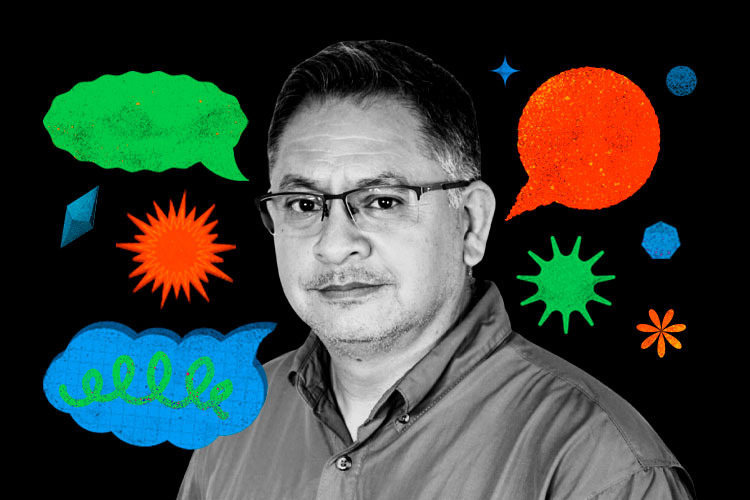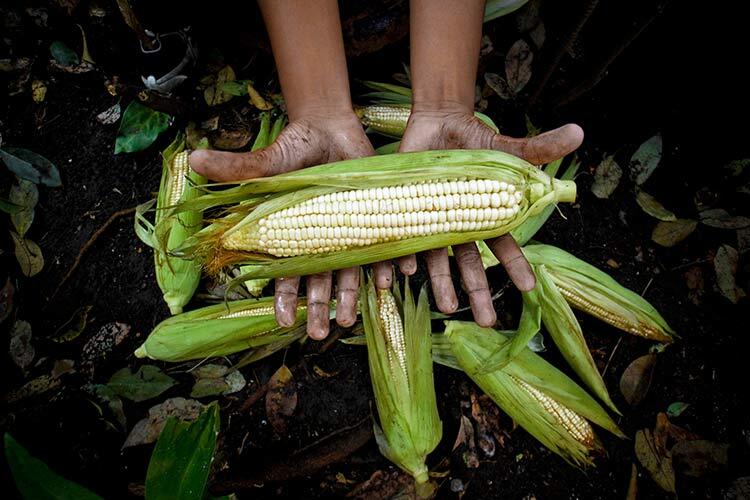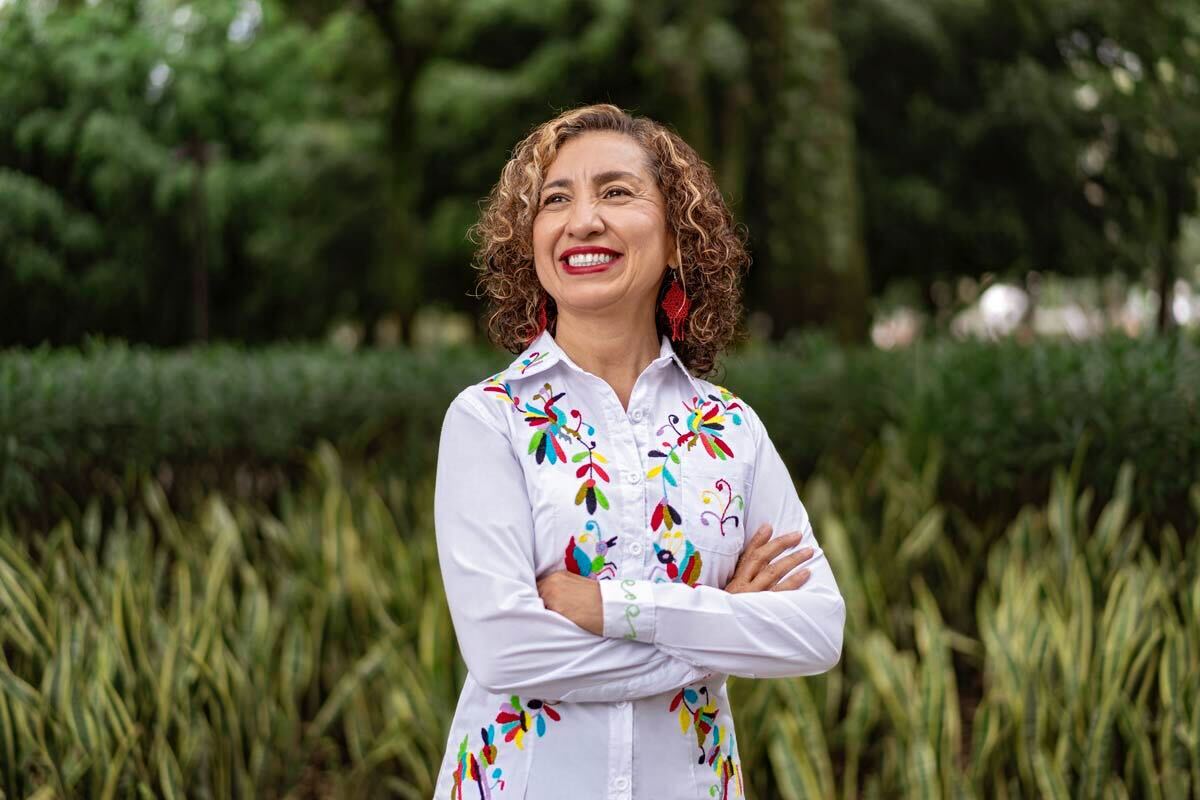Ambassador of the World Health Organization (WHO) and former British Prime Minister Gordon Brown called on Mexico and the other G20 countries to finance greater production of covid vaccines and distribute them more equitably around the world without stockpiling doses in the richest countries, which have already immunized 75% of their adult populations.
He stressed the need to reach those regions of the world with the lowest immunization rates.
In an interview with TecScience from his offices in the United Kingdom, Brown says that better distribution of the vaccine is a “moral issue” and that countries must work to effectively deliver it to countries that have not received it.
“We have the international architecture to do something about it, but it requires not withholding vaccines and stockpiling them, but distributing them instead. India and China are in a position to get these vaccines to the people who need them,” he says.
Vaccination for everyone
Brown has publicly supported the need to suspend vaccine patents. However, he explains that –in the short term– a more immediate solution is required and refers specifically to G20 countries giving up “monopolizing” the distribution of vaccines and personal protective equipment.
For a decade, the former Chancellor of the Exchequer of the United Kingdom –when that country had what is considered the longest period of economic growth in the last two centuries– explains that global immunization against Covid requires a global funding agreement for wealthier nations to contribute greater resources to end the health emergency.
In early February, the ACT Accelerator, a WHO fundraising agency, requested 16 billion dollars to create a vaccine pool.
Brown insists that it is possible to raise that amount through collaboration between the United States, Europe, the oil states, and the wealthier G20 countries to “come very close” to the required amount.
“We did it in the attempt to eradicate smallpox in the 1960s. We had a distribution agreement in which we assessed the contribution that each country would pay based on its income. Although it wasn’t enough, it was a start. However, we haven’t been able to do that in this pandemic,” Brown says.
“We need to treat people equally, not to treat some people like second-class citizens. We need to avoid generating the resentment that will build up when people ask, ‘What did you do to vaccinate Africa?’ and you have to admit that only 11% were vaccinated, even when we had the technology for more vaccines,” he says.
Between COVAX and suspending patents
Can we again build a narrative of “global citizenship” through Covid vaccination around the world?
In underdeveloped countries, only 5% of the population has been vaccinated. In Africa, it’s just 11%. This compares to 75% in some of the world’s wealthiest countries. However, 12 billion vaccines have been produced, which is enough to vaccinate all adults twice. The problem is vaccine distribution, not vaccine production. We need to find ways to get the vaccine to the people who need it. It’s necessary to prevent the spread of diseases and the development of new variants.
What’s happened is that we have COVAX, which can distribute the vaccine, we have ACT-A, which coordinates vaccine financing, we have GAVIY, which delivers vaccines, and we have a global fund. The G20 countries, which initially monopolized 90% of the supplies and still hold 70% of it, have yet to give up this monopoly and allow vaccines to be delivered through COVAX to the countries COVAX wants to help, as well as to Africa.
Is there still talk of temporarily suspending vaccine patents to accelerate production?
Now and in the future, people will want patents to be released, technology to be transferred, licenses and agreements to be made in countries such as those in Africa so they can produce their own vaccines. That is exactly what the WHO announced.
However, there is desperation right now. Patent publication should solve the problems later, but we need vaccine distribution now. There’s no shortage of vaccines if we distribute them fairly.
Africa is suffering three times over. First, because it didn’t receive vaccinations. Second, because it didn’t have the facilities to produce the vaccines in the required quantity; and third, when they were produced in South African facilities, they were exported from Africa to Europe when Africa was the continent with the greatest need and Europe had already vaccinated most of its people. We need to do something about that. We need to end patents.
At one point, President Joe Biden advocated for patent waivers. I support that, but the point is that it hasn’t happened, and even if it happens now, it would be insufficient to solve the current crisis we have, which is only 5% vaccination in low-income countries.
Recall that only 1 in every 100 vaccines goes to low-income countries. Only 1 in 200 tests goes to low-income countries. This won’t be solved overnight with patent waivers, but it’ll be solved by distributing the production we have more equitably.
What is recommended to accelerate the process?
Accelerate vaccine production in existing factories and bring China and India into the equation. Ensure that we don’t stockpile or hold vaccines in the West when they should be readily available and we aren’t using them.
We should also change the delivery contracts so that if the West doesn’t need them, those contracts are given to countries that may need them. Mexico is a member of the G20, and what the G20 has to do is to have a G20 coordinator who has all the information available to distribute the vaccines as quickly as possible so that they don’t remain in warehouses.
Are you calling for Mexico, as part of the G20, to accelerate the production of vaccines?
Yes, I think that is the call. I’m not going to tell individual countries what medical decisions to make about vaccinating young people or how many boosters to apply, but I will tell countries that we cannot distribute enough vaccines to the poorest countries if we’re not mobilizing all our resources to do so.
We’re producing about a billion vaccines a month, which could increase to 1.2 billion. 75% of them are now produced outside China. It used to be 50%. China isn’t part of this scheme, although I would like it to be so that we can get vaccines to the countries that need them.
What do we need in order to strengthen the WHO?
To start with, it needs money. It’s underfunded, so it can’t do all the things it wants to do, but we don’t fund it adequately. The WHO budget is equal to the budget of an average hospital in the United States, and that isn’t enough.

















